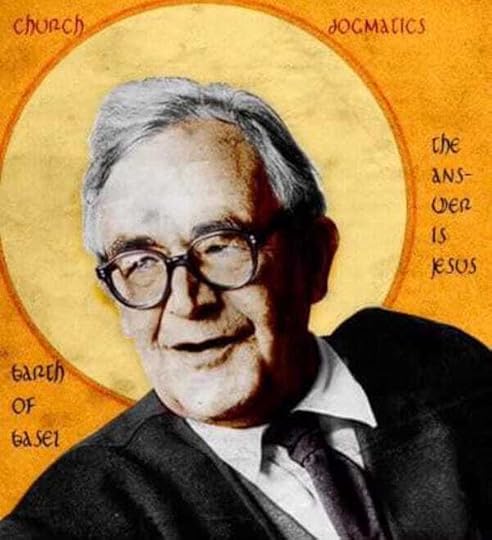"Weak is the Man who Allows Himself to be Pushed into a Position from which He Judges Others"

Tamed Cynic is a reader-supported publication. To receive new posts and support my work, consider becoming a paid subscriber!
Karl Barth once said that “politics is a game that is played in full and vigilant awareness of its relativity.”
More and more, fewer and fewer Christians in America exhibit an awareness of the relativity of politics, of what Bonhoeffer called its finiteness. Neither “Make America Great Again” nor “Protect Democracy” are aspirations chastened by a biblical knowledge of sin, no matter how noble one or the other might prove. Instead of a recognition of our shared finiteness, political parties have become the equivalent of the “Salt Life” sticker on the back of pickups pulling boats; that is, partisanship is now a lifestyle brand.
Politics is an instance of what my friend David Zahl calls seculosity.Given the coming turn in the liturgical calendar and the mere weeks to Election Day, I have been rereading some of the political thought from the church’s cloud of witness.
You can read my last post here.
Here is a brief exegesis by Karl Barth from his Römerbrief, first published in 1919— not a boring, inconsequential time in politics. Note, that by KRISIS Barth refers to the judgment of God upon all things, including— especially— our politics, revealed in Christ.
Barth writes (in admittedly gendered language) :
“The proper “Pauline” Christian takes no interest in differentiating their manner of life from others and has no real capacity for making himself conspicuous— Paul, it is true, did not always reach this standard himself, and we certainly do not. The “Pauline” Christian does not complain of those who hold opinions differing from his own, nor does he abuse them; rather he stands behind them sympathetically asking questions. He has discovered he is his own worst enemy long before he has experienced the hostility of others. He admits without arrogance that there are many other non-Pauline possibilities, but he pays them so little attention that they never become, so far as he is concerned, so clearly defined that he has to reckon with them as opposing possibilities: were this to take place, he would be lost, for his position is no position, and woe betide him, if he were to allow himself to be enticed onto ground where one point of view stands solidly and honestly in opposition to others. He is, if possible, more reserved than even the Socratic philosophers; for he does not assume an attitude of reserve, in order to provoke another to doubt his own convictions.
No, so fundamentally does he presume the One in the other, that the other must be permitted to follow his own road to the end. He who is free in Christ does not win his victory in the midst of clashing convictions; he wins by recognizing the common End of all convictions.
This attitude is very far removed from “toleration,” for he certainly does not intend to let the convictions of others be; but it is equally far removed from “intolerance,” for he certainly does not wish to take away their convictions from them. He treats the convictions of others seriously, merely because he is aware of the KRISIS— the judgment of God upon all things, revealed in Christ— which lies before them and behind them. His own way is peculiar only in the sense that whereas others forget this KRISIS, he is mindful of it.
He is right, only because he does not desire to be right.
All reformers are Pharisees. They have no sense of humor. Deprive a Total Abstainer— a really religious Socialist, a Churchman, or a Pacifist— of the PATHOS of moral indignation, and you have broken his backbone.
The Pauline Christian makes of his freedom a concrete thing, making himself weaker than the weak. He knows what his opponent does not know— namely that, God maintains fellowship with him nevertheless, that is with the OTHER.
Can anyone with any understanding of the unparalleled mercy of God set at nought the OTHER?
Does the behavior of the OTHER lie so far outside the freedom of God that the strong man (i.e., the one who knows he’s free in Christ) should suppose that, though he may continue in fellowship with publicans and whores, Pharisees must be excluded?
Weak is the man who allows himself to be pushed into a position from which he judges others.”
 Get more from Jason Micheli in the Substack appAvailable for iOS and AndroidGet the app
Get more from Jason Micheli in the Substack appAvailable for iOS and AndroidGet the app
Jason Micheli's Blog
- Jason Micheli's profile
- 13 followers



